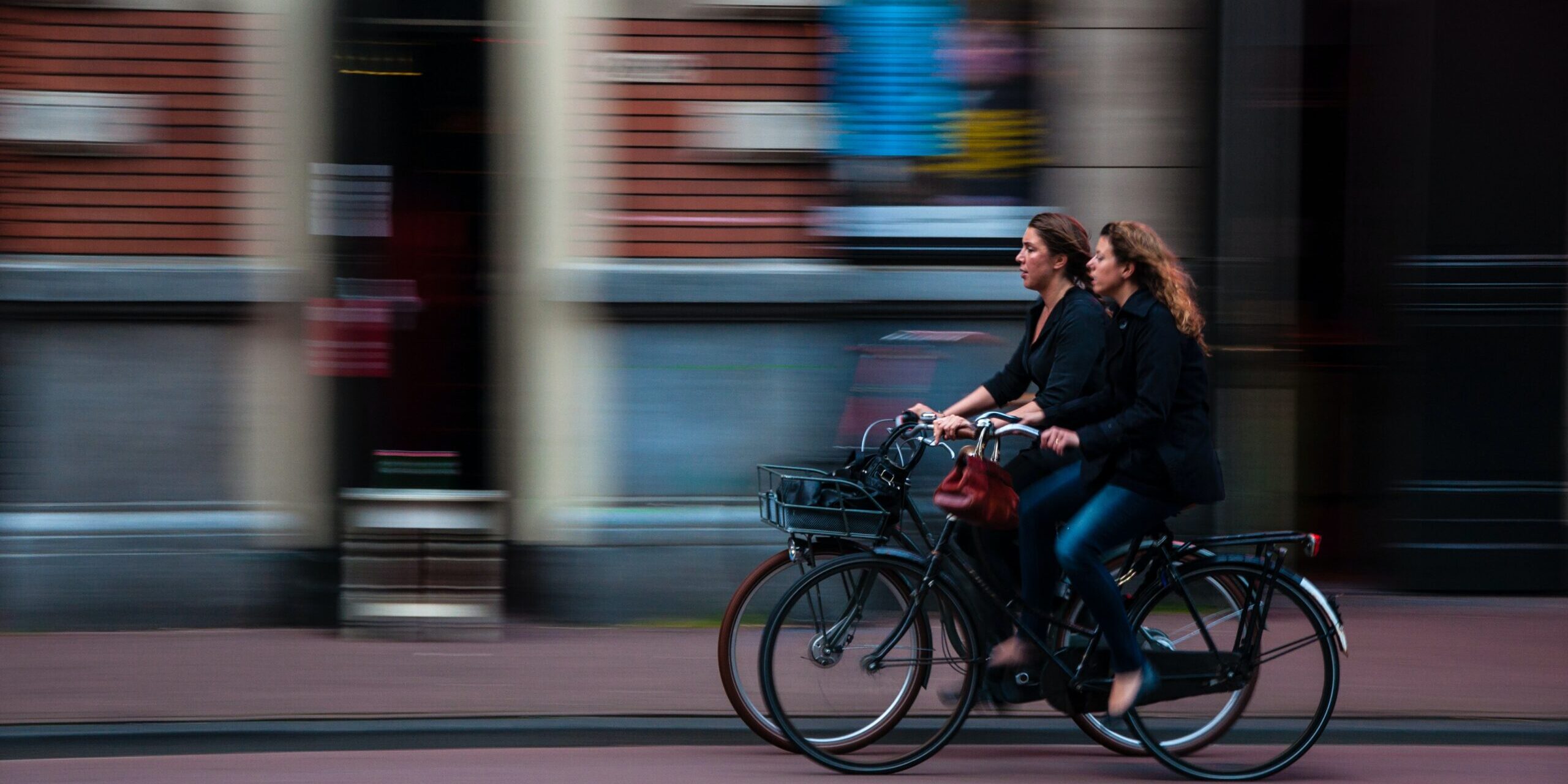Cycling, walking and public transport are contributing to a consistent reduction in car use among commuters according to the latest figures from insight specialists Sports Marketing Surveys.
Compared to 2020, the number of people cycling to work has held up strongly. In week one of the study, back in mid-June 2020, just 1.3% of people overall and 4.5% of all those travelling to work did so by bike. Just over one year on, as the UK emerged from lockdown in July 2021, the figure stands at 3% of the overall population and 6.7% of those commuting.
Cycling’s journey share peaked at 12.6% of workers in the weeks beginning the 26rd April and 3rd May. Interestingly, these weeks, during which England was in the second stage of its path out of lockdown, were not spectacular weeks in terms of weather. In real terms, the increase means that there were an estimated 6.9m British adults commuting by bike at peak.
‘Freedom day’ did not make an immediate impact on these figures, with the proportions of people working from home, travelling by bike, public transport and car remaining relatively similar to the final weeks of lockdown.
All of this is good news for the environment. A rise in active journeys has helped reduce car use compared to last summer. 53% of those travelling to work commuted by car according to the latest findings, 11 percentage points down against the figures from June 2020, which represented the peak point in the last year. Recovering confidence in public transport is a key factor. But, perhaps even more promising is the fact that the number of people walking to work has remained high, up just over 6 percentage points compared to week one of the study. One in five British adults walked to a place of work in the week beginning 19th July 2021. Along with cycling, active transport seems to be becoming a long term habit rather than just a short term surge.
The results also show that while the number of people on furlough has dropped significantly compared to Summer 2020, the number working from home has remained relatively consistent, with around a fifth of respondents not commuting in July 2021 for this reason.
It is for policy makers and companies to establish the impacts of this seismic change on productivity and mental health, but it seems that working from home is here to stay, at least to some degree.
Marc Anderman, Business Development Manager at Sports Marketing Surveys, commented:
“This time last year, the Bicycle Association Market Data Service, powered by SMS, was picking up the sales surge as people looked for bikes that would help them exercise, travel and commute privately, without relying on a car or public transport. Whether or not working from home does become the norm, what’s certain is that, thanks to recent infrastructure changes and the sheer number of people who have bikes who didn’t a year ago, cycling is in an excellent position to grow its journey share in the UK. Those who bought bikes for leisure and now find themselves heading back to the office, even if part time, will find they already own the perfect tool. And, at the same time, others will be seeing more cyclists in more segregated cycle lanes and might also start looking to their bike for other leisure journeys at different times of the day and week.”
SMS has been supporting the sports and leisure industry since 1984. In cycling, it operates the Bicycle Association Market Data Service and is a member of Cycling Industries Europe (CIE)’s market impact and intelligence expert group. To purchase the full dataset on commuter journeys, which goes back 12 months, or to understand how Sports Marketing Surveys can support your business, please contact marc.anderman@sportsmarketingsurveys.com
The commuting research was run as part of a UK weekly omnibus with a sample size of ~650 UK adults per week. The sample is checked daily against a sample quota to ensure representativity.



